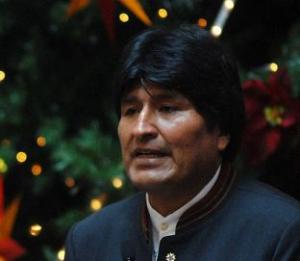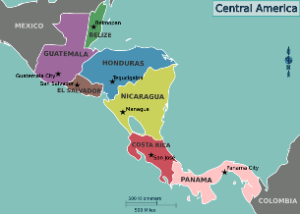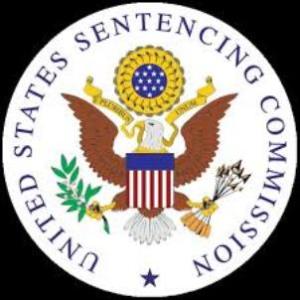With tens of thousands of Central American children and adolescents arriving at the US border, the roots of the crisis tend to be obscured by partisan bickering over what is to be done and who is to blame. There's a good argument the war on drugs deserves some credit.
Late last week, the US Sentencing Commission extended sentencing reforms for federal drug defendants to include people who are already serving their sentences. Some 46,000 drug war prisoners could see cuts averaging about two years.
For the first time ever we are offering an "E-Book" as our latest membership premium, as well as a popular author-signed book for a reduced price.
The New Approach Oregon marijuana legalization initiative has qualified for the November ballot, the secretary of state's office reported today.
Medical marijuana takes another step toward self-regulation, patients and supporters rally for a fired Arizona medical marijuana researcher, Illinois expands its medical marijuana program, and more.
A federal grand jury in San Francisco has indicted FedEx on charges it conspired to distribute controlled substance over its shipments of prescription drugs for illegal online pharmacies. FedEx says it will fight the charges.
More cops with pain pill problems, another jailer busted, another cop caught in a protection sting, and another cop gets caught peddling steroids and prescription drugs.
Marijuana decriminalization comes to the nation's capital, Vermont is set to study marijuana legalization, New Jersey residents press for "decarceration," Canadians are ready for marijuana reform, and more.
Tens of thousands of federal drug prisoners could get out early after the US Sentencing Commission votes to make guideline reductions retroactive, the Ohio Supreme Court moves to cut some crack sentences, FedEx gets indicted for shipping pills for Internet pharmacies (and not taking a deal with the feds), and more.
The World Health Organization calls for drug decriminalization (and more), international drug reform and harm reduction groups warn of an AIDS prevention crisis, marijuana policy is popping up in some Republican primaries, and more.
This is the Drug War Chronicle, not the Marijuana Policy Chronicle, but that's how the news breaks sometimes. It's all marijuana and medical marijuana news today.
South Portland, Maine, will vote on marijuana legalization in November, medical marijuana researcher Dr. Sue Sisley's campaign to be reinstated is picking up steam, Mississippi officials get an earful at a public forum on a welfare drug testing law, and more.
The mass migration of tens of thousands of children and adolescents from Central America festered for months before exploding into a full-blown border refugee/immigration crisis in the last few weeks, as images of hundreds of children warehoused in temporary holding facilities competed with equally compelling images of crowds of angry Americans loudly protesting their presence.

At the border. (COHA)
The finger-pointing is in full swing. Much of it centers on the need to "secure the border" and the Obama administration's alleged failure to do so. Other Republican critics blame the administration's alleged "softness" on child immigrants as a factor pulling the kids north. Democrats counter that the GOP's blockage of long-pending immigration reform is part of the problem.
A lot of the discussion centers around the "pull" factors -- those policies or social or economic realities that draw these immigrants toward the US, but equally at play are "push" factors -- those policies or social or economic factors that impel these emigrants to seek new, better lives outside their homelands.
And there is finger-pointing going on about that, too, with some loud and prominent voices placing a good share of the blame on prohibitionist US drug policies in Latin America -- their emphasis on law enforcement and military responses, their balloon effects, and their other unintended consequences.
The majority of the child immigrants are coming from El Salvador, Guatemala, and Honduras, the so-called Northern Triangle of Central America (the isthmus also includes Belize, Nicaragua, Costa Rica, and Panama). Those Northern Triangle countries suffered not only devastating civil wars in the 1980s, with the US supporting conservative, often dictatorial governments against leftist popular guerrilla movements (or, in the case of Honduras, serving as a platform for counterinsurgency against the leftist Sandinista government in Nicaragua), but also chronic poverty and income inequality.
They are also the countries feeling the brunt of the expansion of powerful Mexican drug trafficking organizations -- the so-called cartels -- who, in response to increased pressure from the Mexican government (assisted by US aid under the Merida agreement) began pushing south into the region around 2008. And they are countries where transnational criminal gangs, such as the Mara Salvatrucha (MS-13) have taken on an increasingly high profile, bringing high levels of criminal violence with them. (San Pedro Sula, Honduras, bears the dubious distinction of having the highest murder rate in the world.)
Honduran President Juan Fernandez is one of the prominent voices placing the blame for the crisis squarely on the war on drugs.
"Honduras has been living in an emergency for a decade," Hernandez told Mexican daily newspaper Excelsior. "The root cause is that the United States and Colombia carried out big operations in the fight against drugs. Then Mexico did it. This is creating a serious problem for us that sparked this migration. A good part of (migration) has to do with the lack of opportunities in Central America, which has its origin in the climate of violence, and this violence, almost 85% of it, is related to the issue of drug trafficking," he said.
Former Clinton administration labor secretary Robert Reich has been another prominent voice pointing to the role of the drug war -- and earlier militaristic US interventions in the region. He let loose in a Facebook post last weekend.
"I've been watching media coverage of angry Americans at our southern border waiving signs and yelling slogans, insisting that the children -- most of whom are refugees of the drug war we've created -- 'go home' to the violence and death that war has created, and I wonder who these angry Americans are," he wrote. The "United States is not a detached, innocent bystander" when it came to the refugee crisis, he explained.
"For decades, US governments supported unspeakably brutal regimes and poured billions into maintaining them ($5 billion in El Salvador alone). Implacable opposition to communism -- often defined as virtually any reformer -- gave these regimes a blank check," Reich continued. "The result is a legacy of dealing with opponents through extreme violence and a culture of impunity. Judicial systems remain weak, corrupt, and often completely dysfunctional. After the cold war ended, the United States lost interest in these countries. What was left was destruction, tens of thousands dead, and massive population displacement. The percentage of people living below the poverty line is 54 % for Guatemala, 36 % for El Salvador, and 60 % for Honduras. More recently gangs, organized crime, and drug cartels feeding the US market have become part of this unholy mix."
While the president of Honduras and Democrats like Reich could have political incentives in what is an increasingly ugly and partisan debate over the crisis, a number of experts on the region -- though not all of them -- agree that US drug policies in the region are playing a major role in the affair.
"Although there are many factors, clearly the drug war is one of them," said John Walsh, senior associate for drug policy for the Washington Office on Latin America (WOLA). "There can't be any doubt that drug trafficking and efforts to repress it are part of the criminality and violence in Central America," he told the Chronicle.
"It's not the only explanation, of course," he added. "There are decades of weak institutions and long histories of violence in the area. But if you take into account the shifting trafficking patterns resulting from the US helping other governments in the region put pressure on the industry and shift routes through Central America, it has certainly added to the problems."
"We've been engaged in a drug war for 40 years, and everywhere we put pressure, it bulges out somewhere else," said Nathan Jones, fellow in drug policy at Rice University's Baker Institute in Houston. "In the Miami Vice era, we put pressure on the Caribbean, and the trade moved to Mexico. We dismantled the Cali and Medellin cartels in the early 1990s, and in hindsight, we know that also empowered the Mexican cartels."
The pattern keeps repeating, Jones said.
"Through the Merida Initiative, we put more pressure on the Mexican cartels -- and for very good reasons -- but that resulted in their dispersal into Central America. The Zetas and the Sinaloa cartel established alliances and began carving out chunks of Central America. They shifted to two-state and multi-stage trafficking operations and tried to minimize their risk by having their loads stop in various countries."

Honduran President Juan Orlando Hernandez (wikipedia.org)
At the same time the Mexican cartels were pushing (and being pushed) into Central America, Central American gangs were rearing their tattooed heads. Ironically enough, gangs like Mara
Salvatrucha (MS-13) had their origins in another US war in the region: the Reagan-era effort to thwart the rise to power of popular leftist guerrillas.
"Deportation got us into this mess in the first place," said Jones. "We had immigrants coming from Central America during the wars of the 1980s. Some of them formed their own gangs after being rejected by Mexican street gangs in places like Los Angeles, and when they showed up in the criminal justice system, we deported them back to their home countries. We transnationalized those gangs in the process, and now the violence from those very gangs is resulting in another mass migration flow. And now we are proposing the same solution of deportation. This doesn't deal with root causes."
"I'm not a big proponent of the drug war as an explanation for everything," countered Eric Olson, associate director of the Latin American Program at the Woodrow Wilson Center in Washington, DC. "We need to stop thinking about the violence in Central America as a drug problem. It's a factor in the violence but not really a primary factor. Community based criminal networks involved in extortion, kidnapping, and other forms of criminal activity -- including retail drug markets -- are more of a factor," he told the Chronicle.
"There is virtually no state presence in most of the areas of highest violence so it's a little hard to blame the drug war," Olson continued. "Where the drug war has been the biggest problem has been when there are mass operations and mass detentions, but even those arrests have less and less to do with drugs and more and more to do with the criminalization of gang membership, extortion, and other things. We've got to stop seeing everything through the drug war lens."
"Criminal groups have diversified their business models," WOLA's Walsh conceded. "Drug trafficking is only one aspect, but the revenues are so huge that there is more money to buy weapons and corrupt officials, so it contributes to crime and impunity. There is no doubt this is part of the problem."
"This is a very complicated issue, with lots of causal factors, and blaming it solely on US policy has lots of shortcomings," said Alicia Magdalena Duda, a researcher with the Council on Hemispheric Affairs (COHA). "But the drug war and the violence is a big issue."
Assigning blame for the status quo is a backwards looking exercise, but what is to be done moving forward? There are divergences of opinion there, too.
"We have to recognize that just equipping these countries to chase drugs around in the interest of interdicting them for our purposes isn't contributing much to reducing violence and increasing public safety," said Walsh. "Drug enforcement as measured by how much they're interdicting has no impact at best, and probably makes things worse. Rather than foster the illusion that we can eradicate the drug trade, we need to steer law enforcement there to reduce violence by going after the worst, most violent actors rather than measuring success in tons seized."
"How to end the violence is a long-term issue," said COHA's Duda. "Those countries are facing extreme violence and poverty. To address this immigration crisis, we have to actively engage with them, and not just with monetary packages. One of the contributors to poverty is corruption, and corruption is rampant there. Ignoring that and just continuing with the present approach is not effective, either," she said.
Duda even broached a very controversial response, one that has also been heard in regard to Mexico and the prohibition-related violence there.
"Maybe they have to engage in peace talks with the gangs and cartels," she suggested.
"One of the great frustrations about Central America is that we supported those right-wing regimes during the Cold War, but we didn't deal with any of the underlying conditions, the grievances, the extreme income inequality, the crushing, grinding poverty," said Jones. "We need a sustained engagement with Central America, but we also have to leverage those host governments to do the right thing. We can't have a situation where wealthy elites are not paying their fair shares of taxes. We have societies fundamentally structured along wrong principles. It will take decades to turn things around, but it needs to happen."
"Our focus should be on reducing violence and addressing the factors that are actually driving the violence," said Olson. "This should include targeted law enforcement, but also prevention programs as well as gang intervention and reintegration programs. Only by reducing violence and the stranglehold criminal networks have on communities will people consider staying in place."
This is a complicated problem with no easy solutions and a lot of different suggestions. Whether prohibition and US drug policies have played a key role or only a supporting one, it does seem clear that, at best, they have not helped. At worst, our drug policies in the region have increased violence and corruption in the region, enriching the worst -- on both sides of the law.
back to top
In a much anticipated move, the US Sentencing Commission last Friday voted unanimously to retroactively apply previously approved reductions in federal sentencing guidelines to federal drug war prisoners already serving their sentences. The move means more than 46,000 federal prisoners will be able to apply for sentence reductions.
"This amendment received unanimous support from Commissioners because it is a measured approach," said Judge Patti Saris, chair of the Commission. "It reduces prison costs and populations and responds to statutory and guidelines changes since the drug guidelines were initially developed, while safeguarding public safety."
It's not going to be a flood of inmates suddenly walking out of federal prisons. Prisoners will not be able to seek sentence cuts until November 1 and none will be released before November 1, 2015. Those cuts will average about two years, turning what are currently average 11-year sentences to average nine-year sentences.
It is not quite a done deal. Congress has until November 1 this year to move to block it, but there appears to be little sign of any significant effort underway to do so.
The move is the latest in an effort by the Sentencing Commission to reduce the excesses of drug sentencing resulting from harsh laws passed mostly in the 1980s. It comes as the federal prison population continues to expand, even as state prison populations have begun to shrink following the enactment of sentencing reforms at the state level.
Before the Commission acted, it opened the issue to public comment, and the response indicated intense interest in making the move. The Commission received some 65,000 letters during the comment period, the vast majority endorsing the proposed change. Commenters included nearly a dozen US senators and representatives, including members of both the House and the Senate judiciary committees, all of them in support of the move, as well as federal judges, civil liberties, civil rights, and sentencing and drug reform groups.
According to the federal Bureau of Prisons, there are 100,549 people serving federal time for drug offenses, accounting for nearly half (49.7%) of all federal prisoners. The next two biggest categories are weapons offenses (15.7%) and immigration offenses (10.4%).

Sentencing Commission Chair Judge Patti Saris (uscourts.gov)
The federal prison population has tripled since 1991, largely driven by harsh drug war sentences, the Sentencing Commission found, and the federal prison budget is now eating up $6 billion a year, or one quarter of the entire Justice Department budget. The federal prison system is currently 32% over capacity, with that figure rising to 52% over capacity in maximum security prisons.
The Sentencing Commission acted in April to redress harsh prison sentences by reducing the base offense levels in drug quantity tables in the federal sentencing guidelines so that drug offenses are scored lower in the federal sentencing grid. That reduces the length of possible sentences for a given offense under the guidelines.
"The Commission has the statutory duty to ensure that the guidelines minimize the likelihood that the federal prison population will exceed capacity," Judge Saris explained. "Reducing the federal prison population has become urgent, with that population almost three times where it was in 1991" and high prison costs "are reducing the resources available for federal prosecutors and law enforcement, aid to state and local law enforcement, crime victim services, and crime prevention programs -- all of which promote public safety," she added.
"Many of the same factors which led us to vote in April to reduce drug guidelines support making those reductions retroactive," Saris continued. "The same changes in the guidelines and laws I mentioned earlier that made the lower guideline levels more appropriate prospectively also make lower guideline levels appropriate for those offenders already in prison, most of whom were convicted after many of these statutory and guideline changes were already in place. In addition, retroactive application of the amendment would have a significant impact on reducing prison costs and overcapacity, which was an important purpose of the amendment, and the impact would come much more quickly than from a prospective change alone."
The Sentencing Commission's action was greeted with cheers from the drug reform and sentencing reform communities.

The Sentencing Commission during a May public hearing. (uscourts.gov)
"We did it!" exclaimed
Families Against Mandatory Minimums (FAMM) president and founder Julie Stewart. "We got full retroactivity of the drug guideline amendment! Because of your help, 46,000 federal drug offenders sentenced before November 1, 2014, will now be eligible to file a motion in federal court asking for a shorter sentence. I am thrilled with this outcome, especially because we did it together," she said. "More than two dozen FAMM supporters were present with me in the hearing room when the Commission voted in favor of full retroactivity. All of us were overjoyed at the result."
"The Sentencing Commission has promoted fundamental fairness by making its amendment retroactive, ensuring that sentence dates do not determine sentence lengths," said Marc Mauer, executive director of the Sentencing Project. "This vote reflects an historic shift in the decades-long war on drugs, which has filled half of federal prison cells with people convicted of drug offenses. That war has come at a ruinous cost for all Americans, but particularly for communities of color. Not only has there been an enormous financial cost to the public, but there is little evidence to suggest that excessively punitive federal drug policies have improved public safety," he said.
"Retroactive application of the drug guidelines amendment is an important step toward addressing the unjust racial disparities produced through federal sentencing policies as well," Mauer added. "Because drug law enforcement has disproportionately affected African Americans and Latinos, reduced drug penalties will help to mitigate the effect of harsh sentencing policies on communities of color."
"It makes little sense, of course, to reform harsh sentencing laws proactively but not retroactively," said Ethan Nadelmann, executive director of the Drug Policy Alliance. "But that's what politicians do when they're scared of allowing people out of prison early. The Sentencing Commission really had no choice but to rectify the moral absurdity of keeping people locked up based on sentences that are no longer the law. What they did today was right and just."
The Sentencing Project's Mauer told the Chronicle Tuesday he thought it unlikely that Congress would attempt to block the reform.
"I have not heard of any significant opposition that is developing," he said. "My guess is that since it was a unanimous recommendation from the commission and that this is an election year and members have that on their minds, I'm optimistic there won't be any serious threat of this not going through."
Still, prisoners, their friends, families, and supporters will be waiting for that November deadline for congressional action to pass before they exhale. But it does look as if the federal government has taken a rather significant step in reversing some of the worst excesses of the drug war.
back to top
Dear StoptheDrugWar.org supporter:
Thank you to those who responded to our membership offers by donating during the past week. We continue to offer the following items (as well continue other items through our donation form's drop-down menu):
E-Book: "After Legalization: Understanding the Future of Marijuana Policy," by John Walker of Firedoglake. Read our review of the book, by Drug War Chronicle editor Phil Smith, here. Donate $12 or more to StoptheDrugWar.org, and we will email you a code and instructions for downloading After Legalization (epub or mobi format).
Author-Signed: Dr. Carl Hart's "High Price: A Neuroscientist's Journey of Self-Discovery That Challenges Everything You Know About Drugs and Society" -- now for a reduced minimum donation amount of $35. (Author-signed copies will be sent for as long as current stocks last. After they run out, we reserve the right to send unsigned copies if necessary.)
For a minimum donation of $40, you can request both High Price and After Legalization. For any premium order, make sure to specify your request using our donation form's drop-down menu, or use the comment box for any special instructions.
Although we've asked for the above-listed minimum donation amounts to qualify for these gifts with your membership, I also hope you'll donate more if you can afford to. Things have changed in the drug reform funding scene, making our organization more dependent on membership to continue our programs.
Also note that donations to StoptheDrugWar.org can be tax-deductible, supporting our educational work, or non-deductible, supporting our lobbying work. (Note that selecting any gift items reduces the amount of your donation that is deductible -- which with a smaller gift amount can be most of it.) Donations can be made by credit card or PayPal at http://stopthedrugwar.org/donate, or sent by mail to P.O. Box 9853, Washington, DC 20016. If you are donating by check, please make it payable to DRCNet Foundation (if tax-deductible) or Drug Reform Coordination Network (if not deductible). If you wish to donate stock, the information to give your brokerage is Ameritrade, (800) 669-3900), DTC#0188, and account number 781926492 for tax-deductible gifts or 864663500 for non-deductible gifts -- please make sure to contact us if donating in this way.
Thank you for supporting drug policy reform at this time of amazing opportunity but continuing challenges. Working together we can and will change things for the better -- in fact we already are.
Sincerely,

David Borden, Executive Director
StoptheDrugWar.org
Washington, DC
http://stopthedrugwar.org
back to top
The New Approach Oregon marijuana legalization initiative has qualified for the November ballot, the secretary of state's office reported today.
It won't get a measure number until next month.
First word came in an email from New Approach Oregon's Anthony Johnson. When the Chronicle contacted Johnson to confirm the email, he said "I got the call from the secretary of state's office today."
The initiative had needed some 87,000 valid voter signatures to qualify; it handed in about 145,000 a couple of weeks ago.
That means Oregon will join Alaska in voting on marijuana legalization this year. The District of Columbia is also likely to join that list; the cultivation and possession legalization initiative there is awaiting certification after handing in more than twice the number of signatures required to make the ballot.
Colorado and Washington led the way in 2012. Now, at least two more states, and probably DC, have the chance to legalize it this year. And then comes 2016.
back to top
Medical marijuana takes another step toward self-regulation, patients and supporters rally for a fired Arizona medical marijuana researcher, Illinois expands its medical marijuana program, and more. Let's get to it:
NationalOn Wednesday, a national herbal medicine industry group issued guidelines for medical marijuana manufacturers. The American Herbal Products Association (AHPA) released medical marijuana manufacturing guidelines, completing its compendium of industry standards. The guidelines complement those set by American Herbal Pharmacopoeia (AHP) for the plant's identity, purity, quality and botanical properties.
Arizona
On Monday, a state court judge ruled that patients can sell to other cardholders. A Pima County Superior Court judge has thrown out charges against a medical marijuana patient who offered plants for sale to other cardholders for a $25 "donation," holding that the state's medical marijuana law is vague and can be interpreted as allowing for such activities. So far the ruling only applies to the case at hand, but local prosecutors have vowed to appeal, and a higher court ruling (favorable or otherwise) would set precedent statewide.
On Tuesday, veterans gathered at the University of Arizona to demand reinstatement of a medical marijuana researcher. The veterans gathered at the UA College of Medicine in Phoenix to protest the firing and demand the reinstatement of Dr. Sue Sisley, who was set to do FDA-approved research into medical marijuana for veterans with PTSD before she was fired. Sisley accuses political opponents of medical marijuana of being responsible for her termination.
On Wednesday, the campaign to reinstate medical marijuana researcher Dr. Sue Sisley picked up steam. Veterans rallied yesterday at the University of Arizona College of Medicine in Phoenix in support of the medical marijuana researcher, who says she was fired because of political opposition to her research on the use of medical marijuana for PTSD in veterans. A Change.org petition seeking her reinstatement now had over 67,000 signatures (30,000 of them from Tuesday alone) and a there is also a Facebook page supporting her.
Arkansas
On Monday, the state attorney general rejected the wording of a medical marijuana initiative. Attorney General Dustin McDaniel has rejected the wording of an initiative aimed at putting medical marijuana on the 2016 ballot. The initiative is sponsored by Arkansans for Compassionate Care, which tried unsuccessfully to get a similar initiative on the ballot this year.
California
Last Wednesday, a Northern California congressman called on federal prosecutors to go after "trespass" marijuana growers, not people complying with state law. US Rep. Jared Huffman (D-CA) sent a letter Wednesday to Northern California US Attorney Melinda Haag urging her "to focus prosecutorial and enforcement resources on trespass marijuana growers, not low-level marijuana offenders complying with state law." Hoffman called "trespass" growers "the greatest emerging threat to public safety and environmental health" in Northern California. Click on the link to read the letter in its entirety.
Last Friday, a Kern County judge ruled that a collective can appeal a court decision overturning the county's Measure G dispensary ordinance. Superior Court Judge Kenneth Twisselman ruled that the Highway 99 Collective can appeal his earlier ruling that Measure G violated state environmental laws. Highway 99 was the only collective to comply with Measure G and had been cleared to operate under the restrictive ordinance.
On Monday, the San Bernardino city attorney called on the city council to begin studying ways of enforcing its dispensary ban -- including by allowing a small number of dispensaries. City Attorney Gary Saenz acknowledged the "futility and high cost" of attempting to eradicate dispensaries and suggested the council "move the distribution of medical marijuana from the black market to the regulated market."
On Monday, the San Jose city clerk reported that a signature-gathering campaign to protect the city's dispensaries had fallen short. That means most of the city's 80 dispensaries will have to close by next July. A restrictive ordinance passed by the city council last month limits them to less than 1% of the city's parcels.
Illinois
On Sunday, the governor signed a bill to expand access to medical marijuana. Gov. Pat Quinn (D) yesterday signed into law a bill that will expand the state's medical marijuana program by allowing people with seizure disorders to use it and by allowing minors to participate in it with parental consent. The measure is Senate Bill 2636.
New Mexico
Last Thursday, the state backed off on proposed changes to the medical marijuana program. The state Department of Health announced last Thursday that it will not move forward with proposed rule changes that included limiting the number of plants patients could grow and requiring criminal background checks for patient growers. The department said there will likely be another hearing for public comments before new rules are finalized this fall.
New York
Last Thursday, a state-level medical marijuana business alliance was formed. Albany-area medical marijuana lobbyists have formed a business alliance to jointly fight for their interests. The group is called the Medical Cannabis Industry Alliance of New York. Members will include growers, advocates, real estate interests, and other businesses associated with medical marijuana.
Washington
Last Thursday, the UFCW said it would start representing Washington medical marijuana workers. The United Food and Commercial Workers (UFCW) Local 367 announced this week that it expects to represents workers at a Puyallup medical marijuana collective. The UFCW represents a variety of retail, food processing, manufacturing, and production workers, but has also been active in the medical marijuana industry and has a Cannabis Workers Rising campaign, especially in California, where it has organized numerous work sites.
[For extensive information about the medical marijuana debate, presented in a neutral format, visit MedicalMarijuana.ProCon.org.]
back to top
A federal grand jury in San Francisco has indicted FedEx, the world's largest cargo company, on criminal charges of conspiracy to distribute controlled substances and distribution of misbranded drugs. Federal prosecutors are seeking to forfeit and seize at least $820 million in what they say are proceeds from such illegal shipments.

FedEx truck, Chicago (wikimedia.org)
Read the indictment
here.
The move comes after FedEx rejected offers from federal prosecutors to cut a deal. FedEx's chief competitor, UPS, settled a similar case last year by agreeing to pay $40 million after being linked to the shipment of prescription drugs by illegal online pharmacies. Both cases were brought by US Attorney for the Northern District of California Melinda Haag. [Ed: Haag is loathed by the medical marijuana community for action taken against northern California providers.]
But unlike UPS, FedEx refused to settle. And now, it is vowing to fight the charges.
"FedEx is innocent of the charges," the company said in a statement. "We will plead not guilty. We will defend against this attack on the integrity and good name of FedEx and its employees."
In the past, the company has said it wouldn't settle because it doesn't believe it has done anything wrong. FedEx argues that it should not be held responsible for the contents of the tens of millions of packages it ships each year. The company has acknowledged that it has been under grand jury scrutiny for several years.
The grand jury indictment accuses FedEx of knowingly shipping prescription drugs for two different online pharmacy operations, both of which were prosecuted by the Justice Department. It accuses FedEx of ignoring warnings about doing so for years.
"The advent of Internet pharmacies allowed the cheap and easy distribution of massive amounts of illegal prescription drugs to every corner of the United States, while allowing perpetrators to conceal their identities through the anonymity the Internet provides," said US Attorney Haag. "This indictment highlights the importance of holding corporations that knowingly enable illegal activity responsible for their role in aiding criminal behavior."
The charges carry with them a sentence of up to five years probation and fines totaling "twice the gross gains derived from the offense," or $820 million. Because no individuals are named in the indictment, however, it's not clear who or what would be on probation if FedEx is tried and convicted.
back to top
More cops with pain pill problems, another jailer busted, another cop caught in a protection sting, and another cop gets caught peddling steroids and prescription drugs. Let's get to it:
In Pacific, Missouri,
a Pacific police officer was arrested last Thursday on charges he stole
hydrocodone and
oxycodone from the department evidence room. Arthur
Tullock, 55, is accused of "appropriating" the pills for his own use. He is charged with two counts of theft of a controlled substance and is now out on bail.
In Dawson, Georgia, a Terrell County jail guard was arrested last Friday after he got caught bringing drugs into the jail. Jantzsen Richardson is charged with possession of marijuana, but more charges are pending.
In Waycross, Georgia, a former Pierce County sheriff's deputy was sentenced last Wednesday to 93 months in federal prison for protecting drug dealers. Randy Strickland, 55, agreed to act as a look-out for people he believed were dealing meth, but he was actually caught up in a sting by a snitch monitored by federal agents. He had only sought $100 for providing security.
In Fort Lauderdale, Florida, a former West Palm Beach police officer was sentenced last Friday to five years in prison for selling drugs while on duty, in uniform, and carrying his service weapon. Dewitt McDonald, 46, admitted illegally selling steroids and prescription drugs and copped to one count of carrying a firearm during a drug trafficking offense.
In Clarksburg, West Virginia, a former Shinnston police officer was sentenced Monday to four to 16 years in prison for confiscating hydrocodone from people, then removing pills from the pill bottles before turning them in to the evidence room. Charles Roscoe Henning III had pleaded guilty last month to four counts of obtaining a controlled substance by misrepresentation by fraud, forgery, deception or subterfuge.
back to top
Marijuana decriminalization comes to the nation's capital, Vermont is set to study marijuana legalization, New Jersey residents press for "decarceration," Canadians are ready for marijuana reform, and more. Let's get to it:

Decriminalization is now the law in the District of Columbia.
The District of Columbia is Decriminalized. The decriminalization of the possession of an ounce of less of marijuana is now the law in the nation's capital. A law passed by the DC city council and signed by Mayor Vincent Gray (D) went into effect one minute after minute. Small time pot possession is now punishable only by a fine of $25. But the cops can still take your stash.
Vermont Launches Study of Marijuana Legalization. The state has hired the RAND Corporation to sort through the issues around legalizing marijuana in the Green Mountain State. The administration of Gov. Peter Shumlin (D) says the study is needed because lawmakers are expected to take up the issue during the legislative session next year. A report is expected to be issued by January.
Medical Marijuana
UFCW to Start Representing Washington State Medical Marijuana Workers. The United Food and Commercial Workers (UFCW) Local 367 announced this week that it expects to represents workers at a Puyallup medical marijuana collective. The UFCW represents a variety of retail, food processing, manufacturing, and production workers, but has also been active in the medical marijuana industry and has a Cannabis Workers Rising campaign, especially in California, where it has organized numerous work sites.
Drug Policy
Netroots Nation Gathering to Take Up Drug War Issues Friday. The ninth annual gathering of progressive voices known as Netroots Nation, meeting in Detroit this week, will address the war on drugs during a panel Friday. The panel is called "Marijuana Arrests: The Gateway to Mass Incarceration." The panel will take place at 4:30pm and can viewed live online here.
Sentencing
New Jersey Campaign to Reduce Incarceration Gets Underway. Residents of Essex County have launched a campaign to get lawmakers to pass legislation that would reduce incarceration in the Garden State. More than a thousand of them have signed a Change.org petition urging legislators to pass a bill they call the New Jersey Decarceration Act, which would lead to a large-scale release of nonviolent drug and other offenders.
International
Canadians Ready for Marijuana Reform, Poll Finds. An Ipsos-Reid poll commissioned by the Department of Justice has found that seven out of 10 Canadians are ready to decriminalize or legalize marijuana. Some 37% of respondents said it should be legalized, while another 33% said it should be decriminalized. Only 14% supported the status quo, while 12% wanted harsher penalties. The poll was commissioned by the government in December, but it hid the results until the newspaper The Star managed to obtain them.
Malaysian Court Sentences Nigerian Student to Death for Marijuana Trafficking. A Malaysian High Court judge sentenced Nigerian college student Uchechukwu Nelson Ohaechesi to be hanged after he was convicted of trafficking 26.5 kilograms of marijuana.
back to top
Tens of thousands of federal drug prisoners could get out early after the US Sentencing Commission votes to make guideline reductions retroactive, the Ohio Supreme Court moves to cut some crack sentences, FedEx gets indicted for shipping pills for Internet pharmacies (and not taking a deal with the feds), and more. Let's get to it:

Federal Correctional Institution, Englewood, CO. There may soon be room at the inn. (wikimedia.org)
New York Medical Marijuana Business Alliance Formed. Albany-area medical marijuana lobbyists have formed a business alliance to jointly fight for their interests. The group is called the Medical Cannabis Industry Alliance of New York. Members will include growers, advocates, real estate interests, and other businesses associated with medical marijuana.
New Hampshire Advocates to Demonstrate at Statehouse Next Wednesday to Criticize Medical Marijuana Program Delays. Next Wednesday is the one-year anniversary of Gov. Maggie Hassan's signing of the state's medical marijuana bill, but the state's program is beset with needless delays, say advocates, who will gather at the statehouse in Concord next Wednesday to shine a media spotlight on the problem. Click on the link to RSVP.
Northern California Congressman Calls on US Attorney to Go After "Trespass" Marijuana Growers, Not People Complying With State Law. US Rep. Jared Hoffman (D-CA) sent a letter Wednesday to Northern California US Attorney Melinda Haag urging her "to focus prosecutorial and enforcement resources on trespass marijuana growers, not low-level marijuana offenders complying with state law." Hoffman called "trespass" growers "the greatest emerging threat to public safety and environmental health" in Northern California. Click on the link to read the letter in its entirety.
New Synthetic Drugs
Alaska Tries New Tactic in Battle Against Synthetics -- Fining Stores That Sell Them. Gov. Sean Parnell (R) Wednesday signed into law a bill designed to block the retail sale of synthetic drugs by defining them as products with "false or misleading labels" and imposing fines similar to traffic tickets on people who sell or possess them. The move comes after earlier efforts to suppress the new synthetics were undermined by manufacturers who adjusted their recipes to avoid lists of banned synthetics.
Law Enforcement
FedEx Hit With Criminal Indictment for Shipping Internet Pharmacy Drugs. A federal grand jury in San Francisco has indicted FedEx, the world's largest cargo company, on criminal charges of conspiracy to distribute controlled substances and distribution of misbranded drugs. Federal prosecutors are seeking to forfeit and seize at least $820 million in what they say are proceeds from such illegal shipments. Read the indictment here.
Sentencing
US Sentencing Commission Votes Unanimously for Retroactivity in Drug Sentencing, Could Affect 46,000 Federal Prisoners. The United States Sentencing Commission voted unanimously today at a public meeting to apply a reduction in the sentencing guideline levels applicable to most federal drug trafficking offenders retroactively, meaning that many offenders currently in prison could be eligible for reduced sentences beginning November 2015. Unless Congress disapproves the amendment, beginning November 1, 2014, eligible offenders can ask courts to reduce their sentences. Offenders whose requests are granted by the courts can be released no earlier than November 1, 2015. The Commission estimates that more than 46,000 offenders would be eligible to seek sentence reductions in court. These offenders' sentences could be reduced by 25 months on average. Click on the link for more information.
Ohio Supreme Court Rules Crack Defendants Sentenced After New Law to Reduce Disparities Went Into Effect Must Be Resentenced. The state Supreme Court ruled Wednesday that defendants convicted before laws reducing the penalty for possessing crack cocaine went into effect, but sentenced after they went into effect must be resentenced under the new law. The case is State v. Limoli.
International
Australia Drug Use Survey Released. The 2013 National Drug Strategy Household Survey, conducted by the Australian Institute of Health and Welfare, was released Thursday. Cigarette smoking is down, youth drinking is down, and so is the use of heroin, ecstasy, and GHB. The misuse of pharmaceuticals is up, and the use of meth remains steady.
Ending Moratorium, Singapore Executes Two Convicted Drug Dealers. Singapore today hanged two convicted drug dealers, the first executions for drug offenses since it imposed a moratorium on them in 2011. Tang Hai Liang, 36, had been convicted of trafficking 89.55 grams (3.2 ounces) of pure heroin and Foong Chee Peng, 48, had been found guilty of dealing 40.23 grams of the same illegal drug. Both are Singapore citizens. They had chosen not to seek resentencing under a 2012 law that abolished mandatory death sentences in some drug trafficking cases.
back to top
The World Health Organization calls for drug decriminalization (and more), international drug reform and harm reduction groups warn of an AIDS prevention crisis, marijuana policy is popping up in some Republican primaries, and more. Let's get to it:

Times are changing when marijuana legalization becomes an issue in Republican primaries. (wikimedia.org)
MPP Urges Votes for Bob Barr in Georgia Republican Congressional Primary Tomorrow. The Marijuana Policy Project is calling on its Georgia supporters to get out and vote for Republican congressional candidate Bob Barr in the primary tomorrow in the state's 11th congressional district. Barr made a reputation in the 1990s as an arch-drug warrior, but has since become a staunch supporter of drug policy reform and civil liberties.
Kansas GOP Gubernatorial Candidate Challenges Incumbent With Platform That Includes Legalizing Marijuana. Gov. Sam Brownback (R) is facing a long-shot challenge from Jennifer Winn, a small businesswoman whose son is facing a murder charge over a marijuana deal gone bad. She says she entered the race out of anger over that, and her platform includes legalizing marijuana and industrial hemp, as well as a broader call for drug policy reform. Her race is being watched as a sign of how damaged the state GOP is after years of Brownback's ultraconservative social and economic policies.
Washington State Rang Up $1.2 Million in Marijuana Sales in First Week. Only a handful of stores were actually open and supplies were limited, but the first week of legal marijuana sales in Washington still generated more than $1.2 million in sales, according to the state Liquor Control Board. It also generated $318,043 in taxes collected so far.
Despite Philadelphia City Council's Decriminalization Vote, Marijuana Possession Arrests Continue. Last month, the city council voted to decriminalize possession of up to an ounce, but Mayor Michael Nutter opposes the bill, and Police Chief Charles Ramsey vowed to continue marijuana possession arrests. He's lived up to his word. Since the bill was passed, 246 people have been arrested for pot possession, 140 of them charged only with pot possession. Of the 124 people charged with additional crimes, the vast majority were only drug charges. Mayor Nutter has until September to act on the decriminalization bill. He can sign it, veto it, or do nothing, in which case it becomes law without his signature.
Medical Marijuana
Illinois Governor Signs Bill to Expand Access to Medical Marijuana. Gov. Pat Quinn (D) yesterday signed into law a bill that will expand the state's medical marijuana program by allowing people with seizure disorders to use it and by allowing minors to participate in it with parental consent. The measure is Senate Bill 2636.
New Mexico Backs Off on Medical Marijuana Program Changes. The state Department of Health announced last Thursday that it will not move forward with proposed rule changes that included limiting the number of plants patients could grow and requiring criminal background checks for patient growers. The department said there will likely be another hearing for public comments before new rules are finalized this fall.
Psychedelics
Memorial Event for Sasha Shulgin in Berkeley Next Month. The psychonauts at Erowid are hosting a memorial and community gathering in Berkeley next month to honor the memory of Dr. Alexander "Sasha" Shulgin, the legendary scientist of psychedelics who died early last month. Please RSVP if you are planning to attend; click on the link to do so.
Drug Policy
World Health Organization Calls for Drug Decriminalization, Broad Drug Policy Reforms. In a report on HIV treatment and prevention released earlier this month, the World Health Organization quietly called for drug decriminalization, needle exchanges, and opiate substitution therapy. The WHO's positions are based on concerns for public health and human rights.
Drug Testing
Mississippi Public Hearing on Welfare Drug Test Law Tomorrow. The Department of Human Services is holding a hearing tomorrow in Jackson to hear public comment on a new welfare drug testing law that was supposed to have gone into effect July 1. It was delayed to allow for a public hearing. The law is opposed by the ACLU and racial and social justice activists. Click on the link for time and location details.
Harm Reduction
Drug Reform and AIDS Groups Warn of "Global Crisis" in HIV Prevention Funding, Especially for Injection Drug Users. As the 20th International AIDS Conference gets underway in Melbourne, Australia, three drug reform, harm reduction, and AIDS groups have issued a report, The Funding Crisis for Harm Reduction, warning that because of donor fatigue, changing government policies, and an over-reliance on drug law enforcement, the goal of an "AIDS-free generation" risks slipping away. The three groups are Harm Reduction International, the International Drug Policy Consortium, and the International HIV/AIDS Alliance.
Law Enforcement
In Forsythe County, North Carolina, Majority of SWAT Deployments are For Drug Raids. SWAT teams were designed to be used in extreme situations -- hostage-taking events, terrorist attacks, and the like -- but have been subject to mission creep over the years. Forsythe County is one example. In an in-depth report, the Winston-Salem Journal found that the Forsythe County SWAT team had been deployed 12 times in the past year and the Winston-Salem Police SWAT team had been deployed 40 days in the past year "mostly to execute search warrants for drugs."
International
Report on Illicit Drug Corridors Between Bolivia and Peru Published. In a report based on on-the-scene investigation, the Bolivian NGO Puente Investigacion y Enlace (PIE), led by former human rights ombudsman Godo Reinicke, has studied the drug and precursor chemical networks straddling the Peru-Bolivia border. Read the report, Corredores ilicitos entre Boliva-Peru, ¿Rutas escondidas y extrañas? in Spanish, or click on your translate button.
(This article was published by StoptheDrugWar.org's lobbying arm, the Drug Reform Coordination Network, which also shares the cost of maintaining this web site. DRCNet Foundation takes no positions on candidates for public office, in compliance with section 501(c)(3) of the Internal Revenue Code, and does not pay for reporting that could be interpreted or misinterpreted as doing so.)
back to top
This is the Drug War Chronicle, not the Marijuana Policy Chronicle, but that's how the news breaks sometimes. It's all marijuana and medical marijuana news today. Let's get to it:

Medical marijuana -- on the move worldwide. (Colorado DOT)
Oregon's Marijuana Legalization Initiative Qualifies for Ballot. New Approach Oregon, sponsors of an initiative to legalize sales, possession and home growing of marijuana, announced today that the Secretary of State's office has qualified the initiative for the ballot. Voters will get to decide on it in November. If the initiative passes, the state will have until January 2016 to put together a regulatory structure.
Coloradans Still Like Their Marijuana Law, But Not Public Pot Smoking. A new Quinnipiac poll finds that Coloradans support legal marijuana by a margin of 54% to 43%. Amendment 64 legalizing marijuana passed in November 2012 with 54.8%. But respondents oppose allowing marijuana to be smoked in bars (65%), other entertainment venues (63%), and a plurality (49%) even opposed allowing it to be smoked at invitation-only events.
Alaska Legalization Initiative Debated. Proponents and opponents of Ballot Measure 2, the Alaska legalization initiative, debated the merits and demerits of the measure at the Anchorage Chamber of Commerce's luncheon Monday. Representatives of the Yes on 2 campaign duked it out with representatives of the No on 2 campaign.
Medical Marijuana
Patients, Advocates to Protest Problems With New Hampshire Program Wednesday. Tomorrow, the one-year anniversary of Gov. Hassan's (D) signing of the state's medical marijuana law, patients and advocates will gather at the statehouse in Concord to protest delays and other problems with the implementation of the law. It starts at 9:30am.
Veterans Gather at University of Arizona to Demand Reinstatement of Medical Marijuana Researcher. A group of veterans is gathered today at the University of Arizona College of Medicine in Phoenix to protest the firing and demand the reinstatement of Dr. Sue Sisley, who was set to do FDA-approved research into medical marijuana for veterans with PTSD before she was fired. Sisley accuses political opponents of medical marijuana of being responsible for her termination.
Arkansas Attorney General Reject Medical Marijuana Initiative Wording. Attorney General Dustin McDaniel has rejected the wording of an initiative aimed at putting medical marijuana on the 2016 ballot. The initiative is sponsored by Arkansans for Compassionate Care, which tried unsuccessfully to get a similar initiative on the ballot this year.
International
German Court Rules Medical Marijuana Patients Can Grow Their Own. The Cologne Administrative Court ruled today that patients can grow their own marijuana -- if no alternative to medical marijuana exists and buying it at a pharmacy is too expensive. The state health insurance system doesn't cover the cost of medical marijuana, so five patients sought a legal exemption to grow their own. Now, they have it. Currently, 270 people in Germany hold permits to buy and consume cannabis for medical purposes.
Medical Marijuana Gaining Ground in Australia's New South Wales. Premier Mike Baird, Deputy Premier Andrew Stoner, and opposition leader John Robertson have all said this week that they support the idea of legalizing marijuana for medical purposes, as long as concerns over regulation and supply are addressed. The state Green Party also supports it. One member of parliament, Kevin Anderson, said he will file a private member's bill next month to allow for patients and caregivers to possess up to 15 grams of marijuana.
Colombia's Liberal Party Wants to Legalize Medical Marijuana. The Liberal Party will support a bill to legalize medical marijuana, according to national media reports. Senator Juan Manuel Galan said that he would introduce such a bill. The move comes a few months after the mayor of Bogota asked the national government to begin a debate on the topic.
back to top
South Portland, Maine, will vote on marijuana legalization in November, medical marijuana researcher Dr. Sue Sisley's campaign to be reinstated is picking up steam, Mississippi officials get an earful at a public forum on a welfare drug testing law, and more. Let's get to it:

Evo_Morales_3.jpg
South Portland, Maine, Marijuana Possession Legalization Initiative Qualifies for November Ballot. Officials in South Portland confirmed today that a citizen initiative to make marijuana possession legal for adults within city limits has qualified for the November 2014 ballot. Citizens for a Safer Maine, a Marijuana Policy Project affiliate, submitted more than 1,500 signatures, and just 959 valid signatures of registered city voters were required. The South Portland City Council will consider whether to enact the measure or refer it to city voters at its meeting scheduled for August 4.
Delaware House Hearing on Marijuana Decriminalization Today. The House Public Safety and Homeland Security Committee is holding a hearing on a decriminalization bill today. The amended version of House Bill 371 would make possession of up to an ounce a civil offense, punishable only by a fine. Under current law, small time possession is a misdemeanor that can garner up to six months in jail.
Medical Marijuana
National Herbal Medicine Industry Group Issues Guidelines for Medical Marijuana Manufacture. The American Herbal Products Association (AHPA) today released medical marijuana manufacturing guidelines, completing its compendium of industry standards. The guidelines complement those set by American Herbal Pharmacopoeia (AHP) for the plant's identity, purity, quality and botanical properties.
Arizona Judge Rules Patients Can Sell to Other Cardholders. A Pima County Superior Court judge has thrown out charges against a medical marijuana patient who offered plants to sale to other cardholders for a $25 "donation," holding that the state's medical marijuana law is vague and can be interpreted as allowing for such activities. So far the ruling only applies to the case at hand, but local prosecutors have vowed to appeal, and a favorable higher court ruling would set precedent statewide.
Campaign to Reinstate Arizona Medical Marijuana Researcher Picks Up Steam. Veterans rallied yesterday at the University of Arizona College of Medicine in Phoenix in support of medical marijuana researcher Dr. Sue Sisley, who says she was fired because of political opposition to her research on the use of medical marijuana for PTSD in veterans. A Change.org petition seeking her reinstatement now has 66,000 signatures (30,000 of them from yesterday alone) and a there is also a Facebook page supporting her.
Drug Testing
Mississippi Public Forum on Welfare Drug Test Law Leads for Calls to Amend It. A welfare recipient, civil liberties advocates, and Democratic politicians strong criticized the state's new law mandating drug testing for some welfare recipients at a public hearing yesterday. They called for it not to be implemented until it can be amended by the legislature. No one spoke in support of the law.
Law Enforcement
Orange County, Florida, Women Sue SWAT Team Over Violent Drug Raid. A mother and daughter are suing the Orange County Sheriff's Office after a SWAT team drug raid left a family dog dead and the daughter wounded by police gunfire inside their own home. The raid was aimed at a relative who didn't even live at the residence. Police found marijuana seeds and "drug paraphernalia" in the room where the relative had stayed, but charges against him were later dropped.
International
Bolivian President Wins Reelection as Head of Country's Largest Coca Growers Union; Vows to Expand Crop if Re-Elected as President. Evo Morales was a coca grower union leader before he was elected president of the country, and he's still a coca grower union leader. He was just reelected as head of the union, and he told union members that Bolivia needs a new law for coca production that would allow for expanded cultivation.
back to top
















